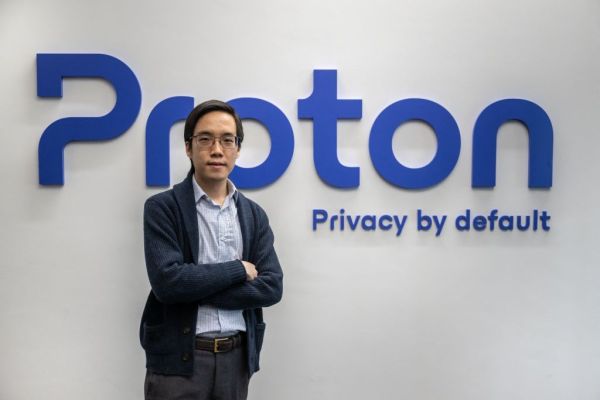Switzerland-based Proton, the privacy-focused firm behind end-to-end encrypted (E2EE) webmail ProtonMail and other apps, has acquired Standard Notes, a note-taking app founded back in 2017. It offers the same kind of robust privacy promise to its 300,000+ users by also applying E2EE.
In a press release announcing the move, Proton emphasized the pair’s “shared values,” including the use of E2EE; a commitment to open source technology; and how neither has relied upon venture capital to drive growth.
E2EE is considered the gold standard of security technology, as service providers don’t hold encryption keys. This means they’re technically unable to decrypt user data, safeguarding users’ content behind a “zero knowledge” architecture. Put another way, you don’t have to trust the service provider not to snoop.
By adding Standard Notes to its portfolio of apps, Proton will deepen its reach with an engaged community of pro-privacy users, layering on additional cross-selling opportunities as well as boosting the utility of its app ecosystem.
The note-taking app fills an obvious gap in Proton’s current lineup.
Proton applies its flagship E2EE promise of robust security to a suite of products, including email, calendar and cloud storage. Additionally, it offers a VPN service. It launched its own pro-privacy and anti-censorship CAPTCHA service last year to further supplement its offerings, but it hasn’t had a dedicated note-taking app until now.
A key plank of the pair’s “community-focused” approach is a freemium strategy that aims to support wider product access through premium (paying) users effectively subsidizing free users. And while there is some usage overlap, a Proton spokesperson said that less than a quarter of Standard Notes users are already Proton users. So there’s room for cross-selling and further community building.
Proton said the Standard Notes app, which is available for both mobile and desktop, will remain “open source, freely available and fully supported.”
It also suggested that there will be no change to Standard Notes’ prices; its press release specifies that existing five-year subscriptions “will continue to be honored.”
“Standard Notes will remain an independent product and in due course both companies will open access to their products to each others’ users,” Proton added.
Commenting in a statement, Mo Bitar, founder and CEO of Standard Notes, talked up the sense of shared mission. “At Standard Notes, over the past seven years we have sought to create a place where people are free to think and write without the worry that someone is looking over their shoulder. That freedom is incredibly rare on the internet today, and something that we want to safeguard forever,” he wrote.
“To enable us to do this, we are excited to join forces with Proton — one of the few organizations that shares our ethos and is not only mission-driven but open sourced, self-sustaining and community focused. In Proton, we’ve found a partner that shares our laser focus on protecting privacy.”
Proton was founded back in 2014, but Standard Notes is only the second company it’s picked up. Instead, it‘s mostly focused on building products in-house to expand its range and grow usage (a year ago it announced passing 100 million users). This includes building on its first acquisition — email alias startup SimpleLogin, which it acquired in 2022 — as well as developing and launching fully fledged password manager app Proton Pass in June.
In that case, Proton leaned on the SimpleLogin team it acquired for the bulk of the product development. So the company is evidently not allergic to user acquisition and other consolidation-based growth opportunities where it sees enough philosophical overlap plus the chance to deepen its technical bank.
As it folds Standard Notes into its deck, Proton aims to repeat the trick, saying it expects the Standard Notes team to make “vital contributions towards the creation and improvement of Proton’s ecosystem of existing and future products.” The wider goal is furthering the shared “mission” of “building a better internet where privacy is the default,” as its PR puts it.
“The deal is a strategic decision designed to benefit users by bringing to market secure, easy to use, private products that anyone can access,” Proton wrote. “Standard Notes and Proton engineers will begin working together immediately to ensure their combined skills and experience bear fruit for users as soon as possible.”
Proton founder and CEO Andy Yen confirmed the respective apps use different encryption schemes. “But that’s actually not a problem for integration, as it’s a separate app,” he told TechCrunch. “At a later point, we may make the accounts interoperable so that a Proton account can also log into Standard Notes and vice versa, as we did with SimpleLogin.”
Asked about the sustainability of pro-privacy business models that don’t rely on exploitation of user data — when so much of mainstream tech still continues to roll in the opposite, data-mining direction — Yen emphasized the need for long-term thinking by privacy startups. And for screwing courage to the sticking place.
“Competing with Big Tech is probably the hardest business challenge that exists today due to the unfair and abusive tactics utilized by tech giants to hinder competitors,” he said. “While recent actions, such as the EU’s Digital Markets Act or the DOJ lawsuit against Apple, may eventually level the playing field, it is going to take many years. It is a critical step in the right direction but won’t make an immediate impact.”
“That means you have to be a bit crazy to attempt this challenge today, and the only way to do it over the long run is to be doing it for the right reasons. The objective cannot be short-term or even mid-term financial outcomes, as those are likely to be challenging to achieve. Instead, you need to be mission-driven enough to survive the brutally difficult long game.”
Financial terms of the acquisition are not being disclosed.
